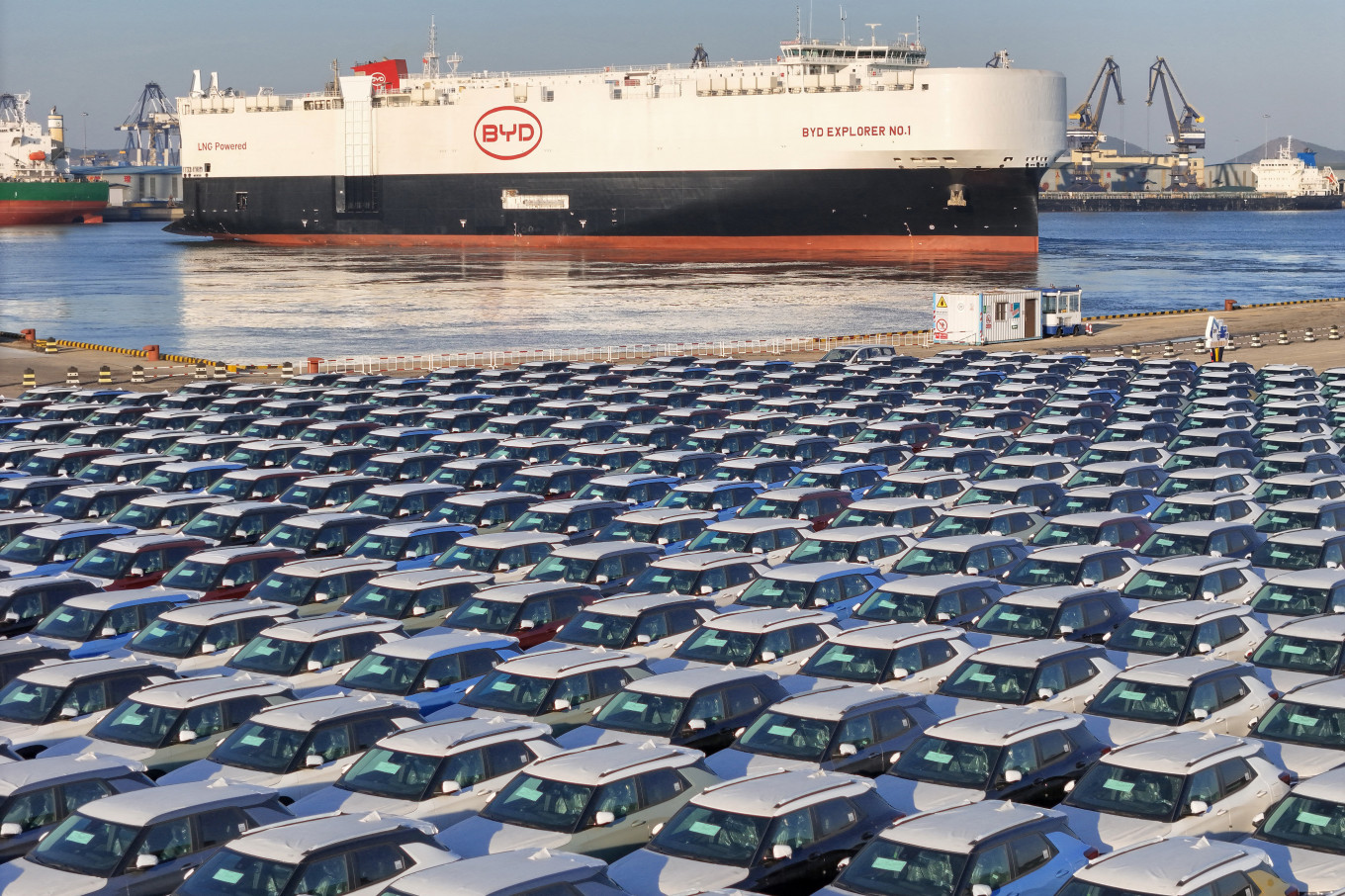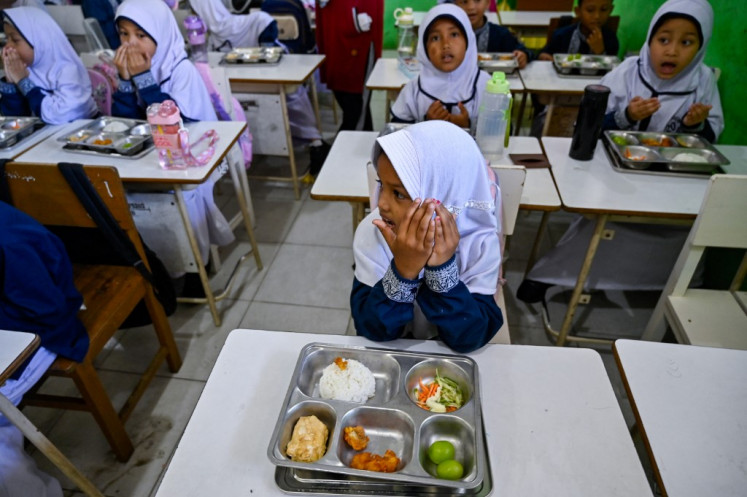Popular Reads
Top Results
Can't find what you're looking for?
View all search resultsPopular Reads
Top Results
Can't find what you're looking for?
View all search resultsWherefore the accusation of China's ‘overcapacity’?
The accusation of "overcapacity" laid against China by certain US politicians is unfounded, as the statics and global trend show, and is simply a blind behind which the US and Western counties hide their growing fear over their potential loss of hegemony.
Change text size
Gift Premium Articles
to Anyone
S
ome United States politicians recently, and on several occasions, accused China of “overcapacity” and imposed new tariffs on Chinese imports, such as electric vehicles (EVs) and chips. This might seem logical, as they claimed China’s “overcapacity” due to investing in emerging industries posed a "great risk" to the US and other countries.
However, it is a fallacy to anyone with basic knowledge of economics. In other words, it is just the latest version of the "China threat" hyped up by some in the US.
Why? Let's start with the following two facts.
First, what kind of capacity does the US claim to be in "excess"? It is China’s new energy industry, including EVs, lithium batteries and solar photovoltaic panels.
But wait, aren’t these precisely the high-quality green technologies that all countries need and are pursuing? Aren’t these industries the new driving forces for post-pandemic recovery?
China has indeed grown rapidly in these areas in cooperation with many countries, especially developing countries.
The thing is, exports and investment in these industries provide high-quality, cost-effective, cutting-edge green products to the world and help with industrial upgrade and employment in many countries. The so-called overcapacity is actually high-quality capacity that is improving people’s lives and global growth.
Second, is the so-called overcapacity really in excess? BY definition, overcapacity means that total production output far exceeds market demand. The statistics do not support such an allegation against China.
According to the International Energy Agency, to achieve carbon neutrality, the world needs to sell 45 million EVs by 2030, more than three times the figure in 2023. Global demand for batteries is estimated to reach 3,500 gigawatt-hours by 2030, more than four times the global shipment in 2023.
Both exceed current global supply capabilities by a huge margin. These high-quality, advanced capacities are not excessive, but insufficient.
With these two facts, China’s so-called overcapacity is already groundless.
Then more questions emerge. Why is there such false accusation? What kind of hidden agenda is behind it?
China has been called the “world’s factory” not for just a day or two, but for 10 or 20 years.
Why did those politicians ignore China’s “overcapacity” when it was the largest source of US imports before? Why did they ignore China’s “overcapacity” when it had to export 1 billion shirts to buy one Boeing airplane and earned less than US$10 for each iPhone assembled? Why are they suddenly noticing China’s “overcapacity” when it is developing high-end industries?
The US accuses China of excessive exports of high-end industrial products. However, the US exports around 80 percent of the chips it makes exported. Roughly 80 percent and 50 percent of the cars made in Germany and Japan are exported, respectively. Boeing and Airbus passenger planes are mainly for export.
Western countries can export high-end products but when it comes to China, it is “overcapacity” and “dumping”. Why?
The answer is quite straightforward. It is all about the hegemonic tradition, selfishness and inherent sense of superiority of the US and other Western countries. They think they are on the top of the world and do not allow any country to challenge or have the potential to challenge their position.
Some in the US have long enjoyed doing one thing over time: labeling other countries, especially those with development potential, under the disguise of so-called democracy, human rights and rules, followed by suppression, containment and smearing.
This time, they invented “overcapacity”. The purpose is to keep developing countries, including China, at the low end of the industrial chain. By doing so, the US and Western countries can go on with their superior lifestyles, enjoying affordable primary products while earning huge profits from high value-added goods. They want to keep it that way forever.
But let them say whatever they want. What they say can by no means change the direction of human progress. What they say can by no means hold back the development of China or the collective rise of developing countries.
What they say is helpful for only one thing: exposing their double standards and their fear and anxiety of losing global hegemony.
China’s high-quality “overcapacity” is good for global growth. Such “overcapacity” could be many more times over.
We hope more developing countries could have such “overcapacity”, which would be a medal of honor for us and a blessing for the majority of the world’s people.
***
The writer is interim chargé d'affaires at the Chinese Embassy in Indonesia.











